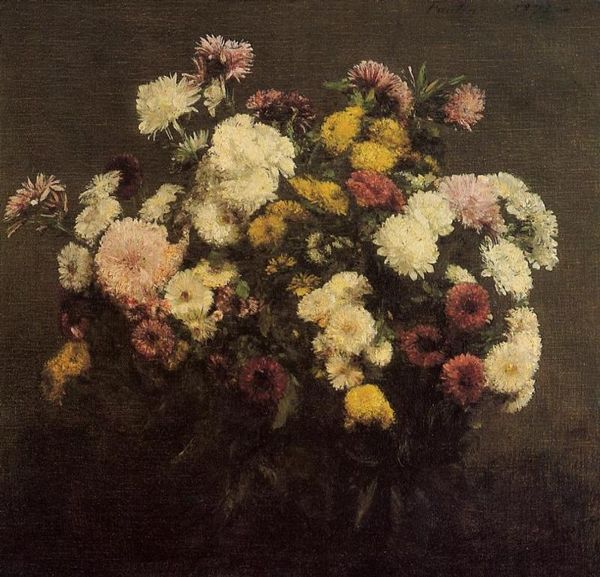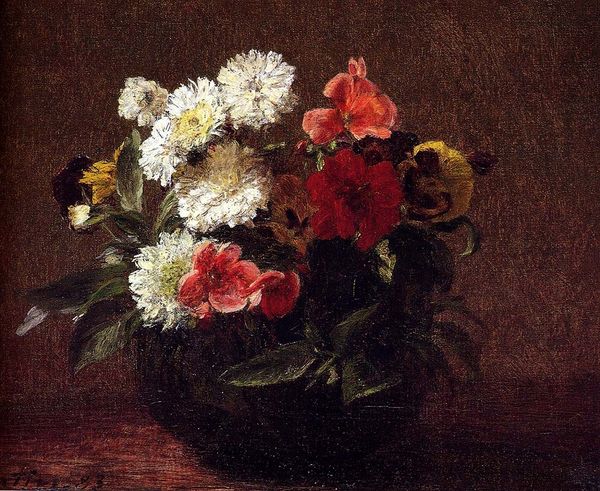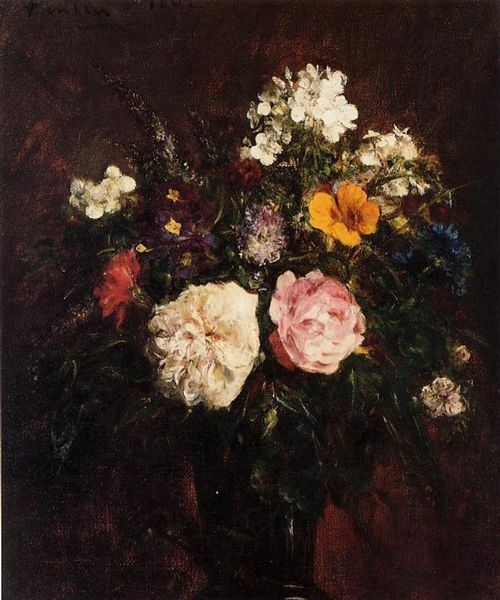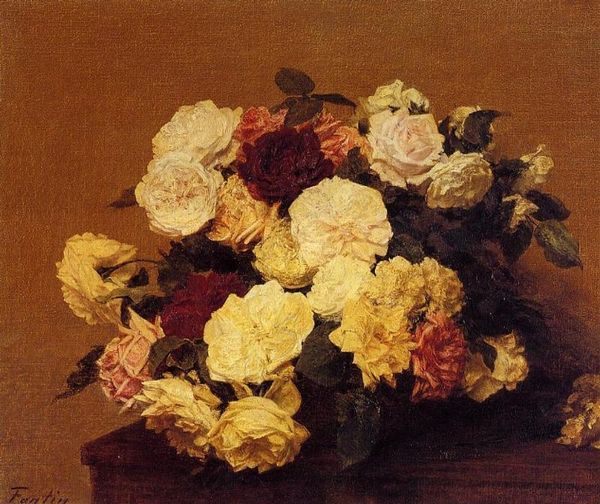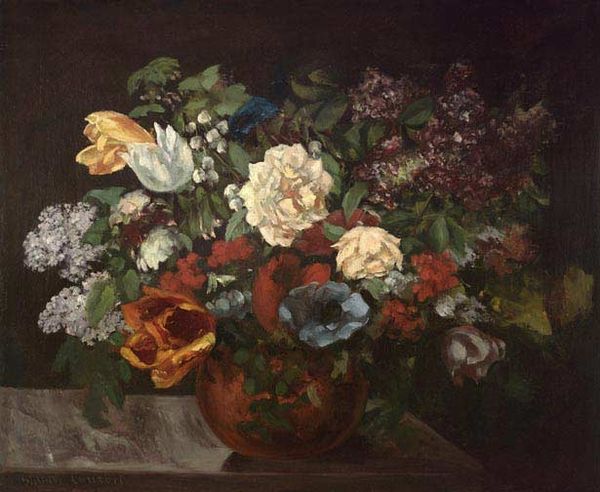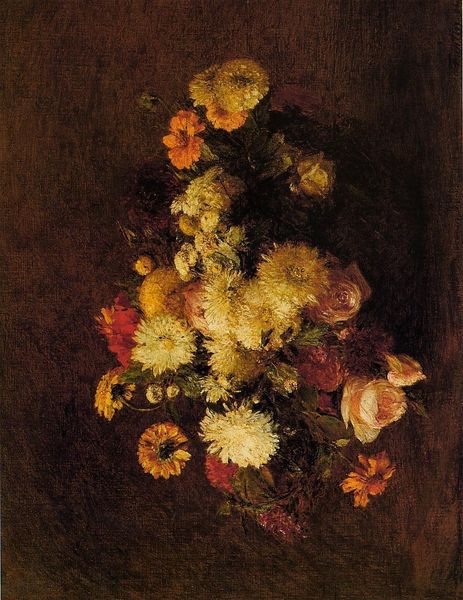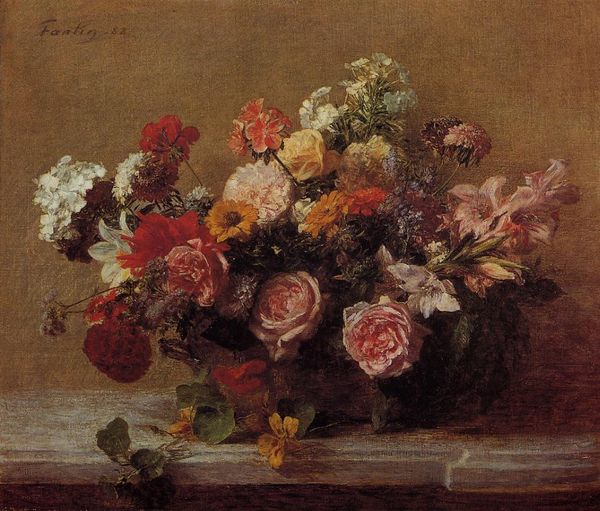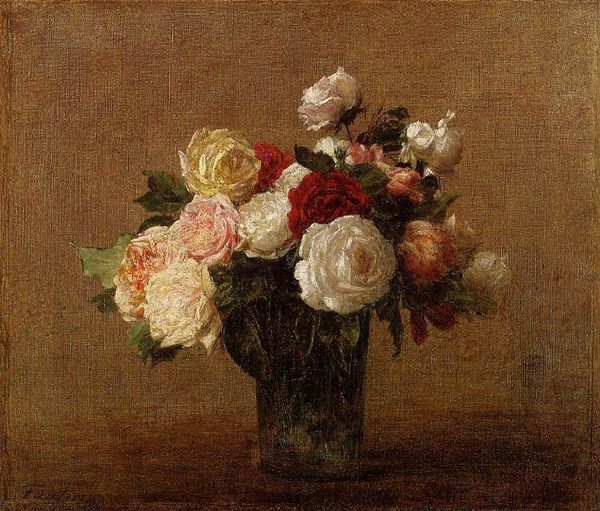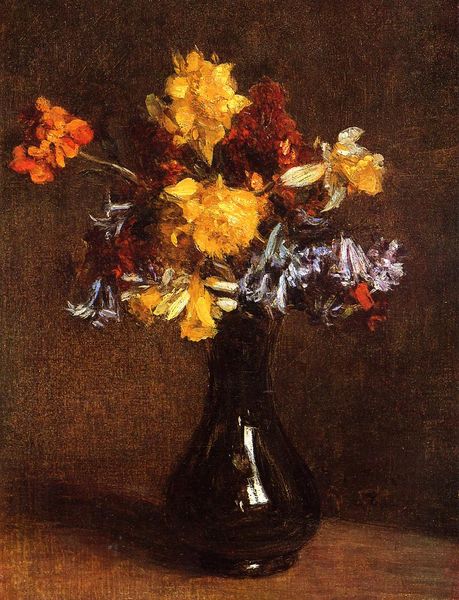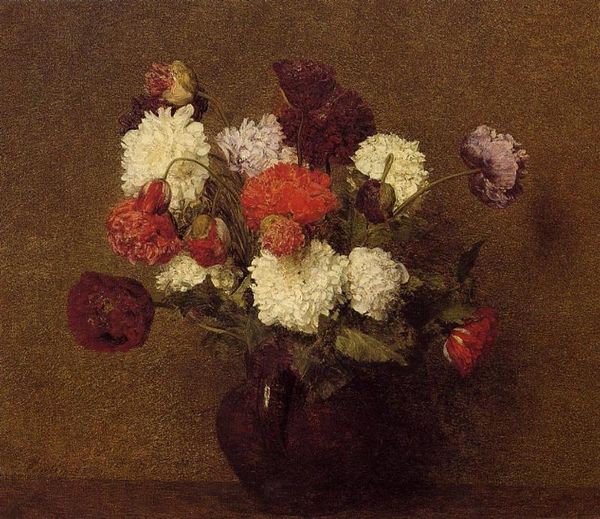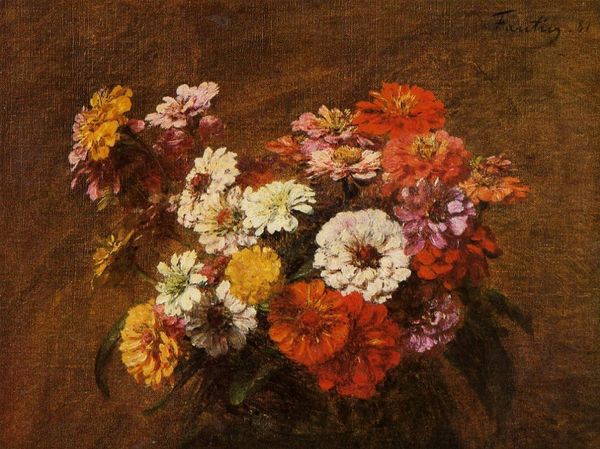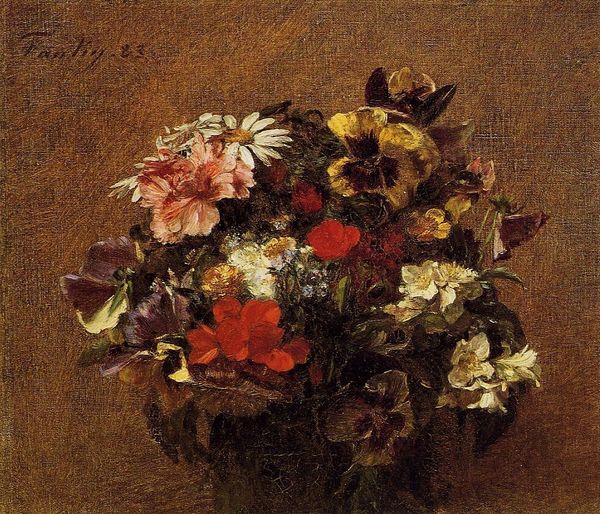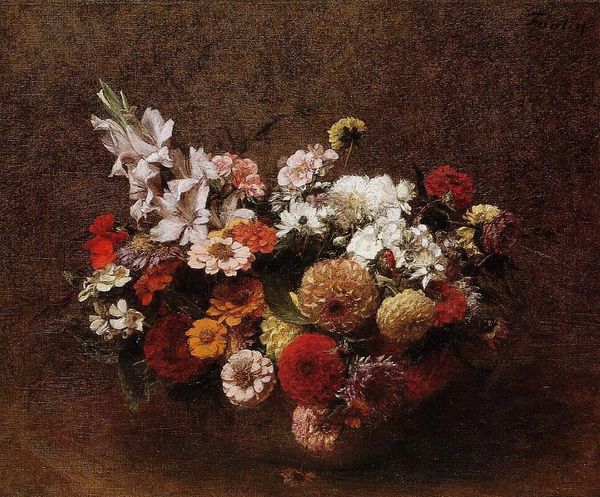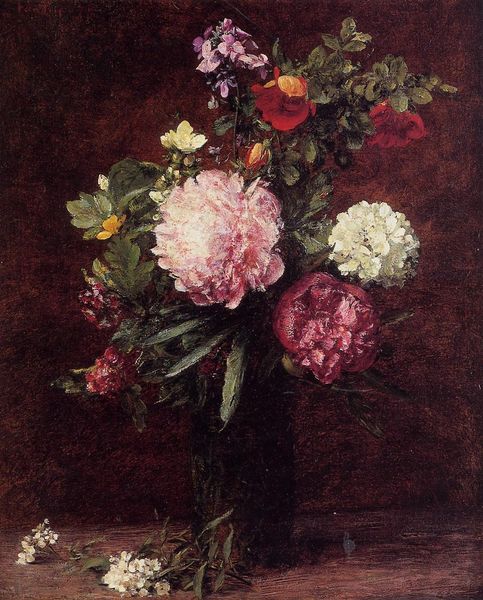
Copyright: Public domain
Editor: Here we have Henri Fantin-Latour's "Flowers Dahlias and Gladiolas," painted in 1879 using oil paint. It feels like a clandestine gathering of blossoms in a darkened room, moody almost. What story do you think it whispers, professor? Curator: Oh, a gathering indeed! To me, it's less clandestine and more of a heart aching embrace between the seen and the unseen. Fantin-Latour loved his photography, and you could almost say he’s captured this bouquet with the same lens - but replacing light with memory. What I find remarkable is the use of dark colors; each flower seems to emerge from this infinite background. Editor: I hadn't thought of it as photographic, but I see it now. The blossoms do appear as if they're floating. But it makes me wonder, why focus so intently on blooms about to fade? Is there an allegory there? Curator: Perhaps! He often painted from memory as if the flower were a symbol of someone he had known, the life about to vanish but not forgotten. This is Fantin-Latour, the Romantic in a realist world, seeking not merely to record the external world, but to evoke its hidden resonances. Think of them as little elegies painted in thick oil. Editor: Elegies. That frames it beautifully! I came expecting flowers; now I see whispered farewells and remembered faces. It is astonishing. Curator: Absolutely. And that, my friend, is the alchemical trick every great painting attempts: transmuting the ordinary into pure feeling.
Comments
No comments
Be the first to comment and join the conversation on the ultimate creative platform.
